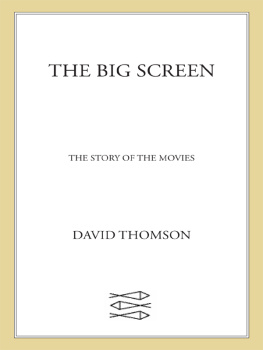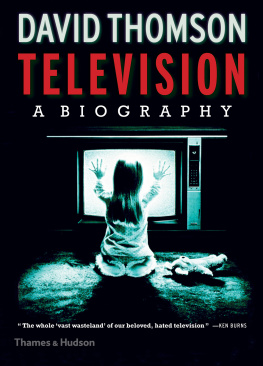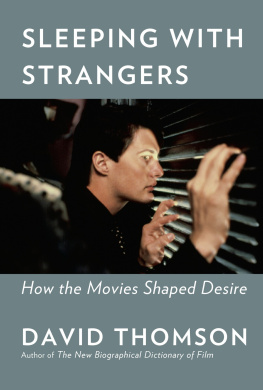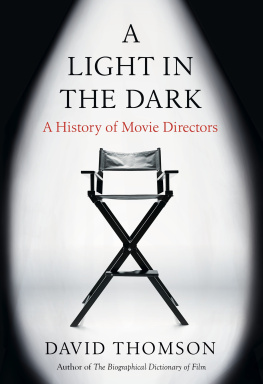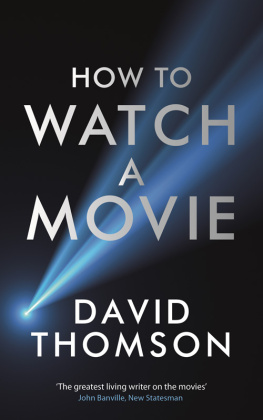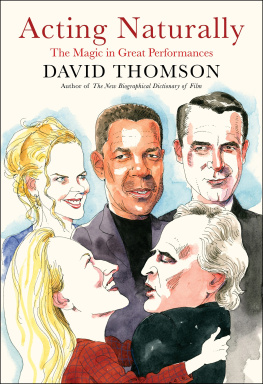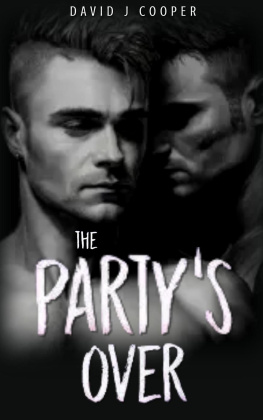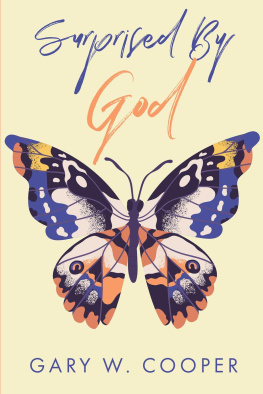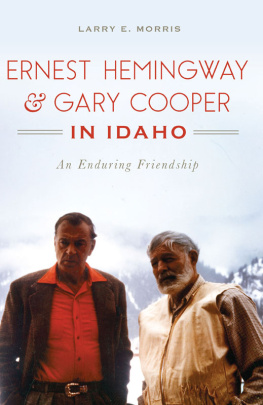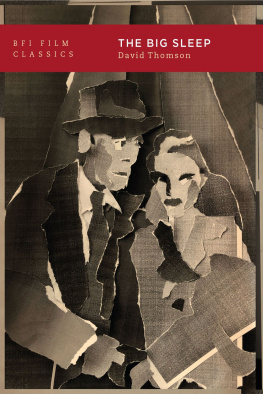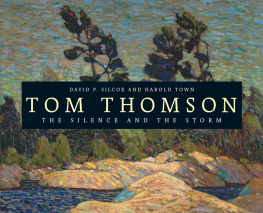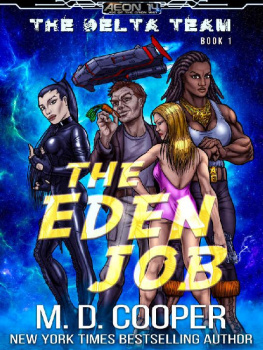David Thomson - gary cooper
Here you can read online David Thomson - gary cooper full text of the book (entire story) in english for free. Download pdf and epub, get meaning, cover and reviews about this ebook. year: 2013, publisher: VIKING ADULT, genre: Non-fiction. Description of the work, (preface) as well as reviews are available. Best literature library LitArk.com created for fans of good reading and offers a wide selection of genres:
Romance novel
Science fiction
Adventure
Detective
Science
History
Home and family
Prose
Art
Politics
Computer
Non-fiction
Religion
Business
Children
Humor
Choose a favorite category and find really read worthwhile books. Enjoy immersion in the world of imagination, feel the emotions of the characters or learn something new for yourself, make an fascinating discovery.

- Book:gary cooper
- Author:
- Publisher:VIKING ADULT
- Genre:
- Year:2013
- Rating:3 / 5
- Favourites:Add to favourites
- Your mark:
- 60
- 1
- 2
- 3
- 4
- 5
gary cooper: summary, description and annotation
We offer to read an annotation, description, summary or preface (depends on what the author of the book "gary cooper" wrote himself). If you haven't found the necessary information about the book — write in the comments, we will try to find it.
gary cooper — read online for free the complete book (whole text) full work
Below is the text of the book, divided by pages. System saving the place of the last page read, allows you to conveniently read the book "gary cooper" online for free, without having to search again every time where you left off. Put a bookmark, and you can go to the page where you finished reading at any time.
Font size:
Interval:
Bookmark:
Gary Cooper
David Thomson is, among many other things, author of The New Biographical Dictionary of Film, now in its fourth edition. His recent books include a biography of Nicole Kidman, completing and editing Fan Tan (a novel started by Marlon Brando and Donald Cammell) and The Whole Equation: A History of Hollywood. His latest work is the acclaimed Have You Seen? A Personal Introduction to 1,000 Films. Born in London, he now lives in San Francisco.
PENGUIN BOOKS GREAT STARS
David Thomson
Humphrey Bogart
Ingrid Bergman
Gary Cooper
Bette Davis
Photo research by Lucy Gray

GREAT STARS
For Joseph
PENGUIN BOOKS
Published by the Penguin Group
Penguin Books Ltd, 80 Strand, London WC2R 0RL , England
Penguin Group (USA) Inc., 375 Hudson Street, New York, New York 10014, USA
Penguin Group (Canada), 90 Eglinton Avenue East, Suite 700, Toronto, Ontario, Canada M4P 2Y3 (a division of Pearson Penguin Canada Inc.)
Penguin Ireland, 25 St Stephens Green, Dublin 2, Ireland (a division of Penguin Books Ltd)
Penguin Group (Australia), 250 Camberwell Road, Camberwell, Victoria 3124, Australia (a division of Pearson Australia Group Pty Ltd)
Penguin Books India Pvt Ltd, 11 Community Centre, Panchsheel Park, New Delhi 110 017, India
Penguin Group (NZ), 67 Apollo Drive, Rosedale, North Shore 0632, New Zealand (a division of Pearson New Zealand Ltd)
Penguin Books (South Africa) (Pty) Ltd, 24 Sturdee Avenue, Rosebank, Johannesburg 2196, South Africa
Penguin Books Ltd, Registered Offices: 80 Strand, London WC2R 0RL , England
www.penguin.com
First published 2009
Copyright David Thomson, 2009
All rights reserved
The moral right of the author has been asserted
Except in the United States of America, this book is sold subject to the condition that it shall not, by way of trade or otherwise, be lent, re-sold, hired out, or otherwise circulated without the publishers prior consent in any form of binding or cover other than that in which it is published and without a similar condition including this condition being imposed on the subsequent purchaser
ISBN: 978-0-14-193146-3
Gary Cooper died six days after his sixtieth birthday, on 13 May 1961, having made over a hundred movies. Only a couple of weeks before his own death when that outcome was certain he and his wife, Rocky, sent a cable to their friend Ernest Hemingway. They had heard that the depressed author was having electroshock treatment. All they said in the cable was, Whats there to say except that you have our love? They were not close enough to Hemingway to know all his troubles, from paranoia to writers block to impotence and the impenetrable gloom he called the black dog days. Hemingway shot himself that 2 July, early in the morning, while his wife was still asleep. He rested his forehead against the shotgun barrels and tripped the triggers. Cooper and Hemingway had a regard for each other they had mutual respect and they reckoned that the other man was part of their meaning. And they were gone in the same season.
And in 1961, of course, John F. Kennedy was busy with his efforts to be president. On 17 April, with unofficial US support, some Cuban exiles invaded Cuba at the Bahia de Cocinos. At the time, it seemed like a shaming debacle years later it is not much less than a day of infamy. Hemingway still had a house in Cuba, as well as many friends there. Gary Cooper was of the right wing politically, so its hard to say what he thought of the Bay of Pigs if he was able to take it in. Perhaps he was sheltered by his wife in the last days just as Mary Welsh did what she could to protect Hemingway. She even announced that his death was accidental, one of those mistakes men make with guns. As if Papa could endure a headline with gun accident in it it was like writing an accidental masterpiece. Still, it was a bad season for American heroes such as Hemingway, Cooper and Kennedy. But worse was to come.
I am reminded of an extraordinarily beautiful photograph. Its taken some time around 1942, with two men at a restaurant or a bar table, both of them leaning back to get a proper look at the other. They are Gary Cooper and Jack Kennedy: the one is a lieutenant in navy uniform, and the other may be making Ball of Fire or even For Whom the Bell Tolls. Kennedy is younger by far, and he is with a movie star and one he admires. You can feel that warmth and affection in Jacks grin. But Coop knows who Jack is, too. Hes Hollywood enough to know the Kennedy story and to know how much support there is already for the lieutenant. He also admires and may be a touch daunted by the boys Pacific suntan and the idea that this kid goes to sea on not much more than a platform with a gun and makes faces at the Japanese. Not to mention the purchasing power at legends store that the Kennedy family had available.
They like each other and they seem amused by the notion that they represent different strands of heroism, the real thing and the movie version. Yet theyre close enough in age to be likely rivals for some young woman who isnt in the picture yet. Shes powdering her nose wondering who takes her back to the hotel. They both fancy their chances, while esteeming the competitor. Their self-confidence is a great part of what makes them attractive. So they havent the faintest idea that the spring of 1961 is going to be a pretty rough time for them they havent read those papers yet.
They are two beautiful guys, and in 1942 there was still no doubt about Coopers handsomeness or his casual eminence. He might not be exactly the laconic angel he had been in 1930 or so, when every photographer in town wanted to shoot him. But Coop was still untroubled, despite a face which, as he said, had lines from being out-of-doors so much by the time he was twenty. Yet there are troubled moments in Mr. Deeds Goes to Town (1936), brief passages where the good-natured Cooper seems to conceive of something ugly, something grave, something as awful as his own failure.
One of the openings available for a book like this is the chance to detect when it is that anxiety creeps into Coops looks. Certainly it is there by the time of High Noon (1952), but you could say that its there because it needs to be because Sheriff Will Kane faces a kind of social betrayal, not to mention death, in his own town. But High Noon comes soon after The Fountainhead (1949), a very important Cooper film, and the occasion of the
Twentieth-century cowboy
greatest threat and disruption in his real life. That is when he nearly went off with another woman, Patricia Neal.
Of course, you can look further ahead, to the haggard, nearly agonized faces he offered the fifties in Love in the Afternoon, Ten North Frederick, Man of the West or They Came to Cordura where he sometimes seems much older or far more stricken than a man in his fifties. But perhaps he was ill aready then, struggling to hold on, or aware that his pure heroism was not quite enough to let a man go all the way. Gary Cooper was not really ambitious. In all those films, he never wrote or directed. Only on one occasion did he try to produce and that fun wore off fast. He did what was offered, without pursuing projects or parts. He had no great opinion of himself as an actor, and so he did not seem to seek out large and challenging parts. He never really took on the novelty of playing an older man in a young persons world. He was always the lead, with action scenes, ever younger actresses opposite him, and with the weight of the film on his face. But something happened, and in any retrospective of Gary Coopers films you cannot miss the sense of osteoporosis or nervousness that eventually overtakes a great American tree.
Next pageFont size:
Interval:
Bookmark:
Similar books «gary cooper»
Look at similar books to gary cooper. We have selected literature similar in name and meaning in the hope of providing readers with more options to find new, interesting, not yet read works.
Discussion, reviews of the book gary cooper and just readers' own opinions. Leave your comments, write what you think about the work, its meaning or the main characters. Specify what exactly you liked and what you didn't like, and why you think so.

